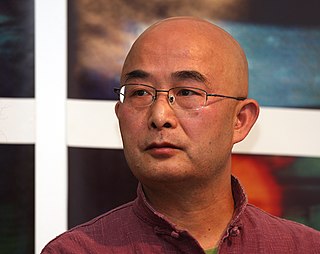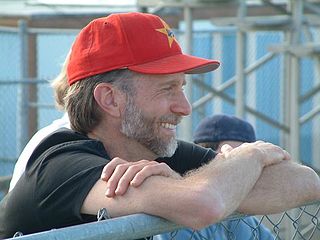A Quote by Nigel Gibson
Political change does not really lead to any fundamental change for most of the people, indeed because politics (even if it calls itself democratic) is elitist and barred to most people, so it is necessary to look to new movements outside of "politics."
Related Quotes
Power is global and politics is local. That must change. We need a new language for understanding new global power formations as well as new international modes of politics to fight them. Social movements must move outside of national boundaries and join with others across the globe to fight the savagery of neoliberal global politics and central to such a task is the work of intellectuals, artists, cultural workers, and others who can fashion new tools and social movements in the fight against the current anti-democratic threats being imposed all over the globe.
If you have reservations about the system and want to change it, the democratic argument goes, do so within the system: put yourself forward as a candidate for political office, subject yourself to the scrutiny and the vote of fellow citizens. Democracy does not allow for politics outside the democratic system. In this sense, democracy is totalitarian.
If you look at social movements in Latin America, there are spaces where alternative politics are thought about on the ground, at the grassroots level, but they are always under threat. The problem in North Africa and the Middle East is the politics of oil. It means that the spaces for truly grassroots politics, involving those masses of people excluded from high politics, are very quickly closed down. They are not really allowed any kind of autonomy to develop, and that seems to be the real problem, which gets us back to the neo-colonial relationship.
Politics? Boring? Politics is history on the wing! What other sphere of human activity calls forth all that is most noble in men's souls, and all that is most base? Or has such excitement? Or more vividly exposes our strengths and weaknesses? Boring? You might as well say that life itself is boring!
Like any young person who gets into a political campaign, I joined out of a highfalutin' desire to change the world. But you start to see the sort of tactics people use. You start to see politics not only in the macro but in the micro of the campaign itself. Some people get turned off by this side of it. Other people are drawn to it.
Buddhism doesn't really have much time for political mass-movements. We are so trained to think of politics in terms of acting collectively, acting as part of mass-movements, that it's become hard for us to imagine a form of politics that is based on a high degree of introspection and self-examination.
As a composer, I believe that music has the power to inspire a renewal of human consciousness, culture, and politics. And yet I refuse to make political art. More often than not political art fails as politics, and all too often it fails as art. To reach its fullest power, to be most moving and most fully useful to us, art must be itself.




































